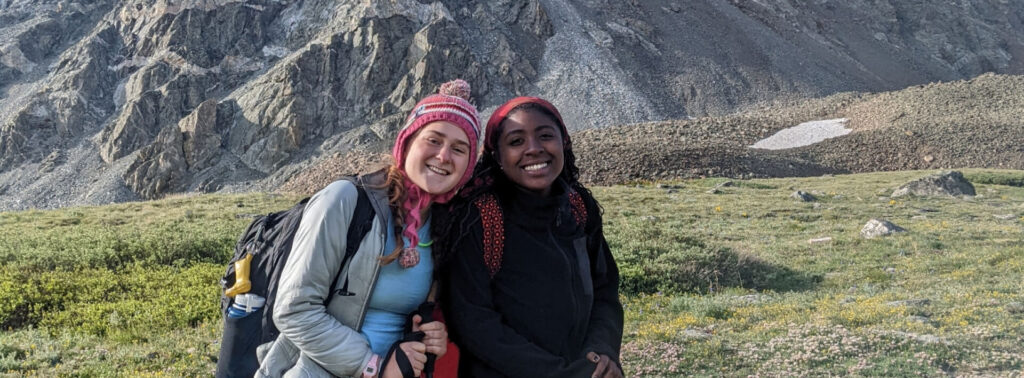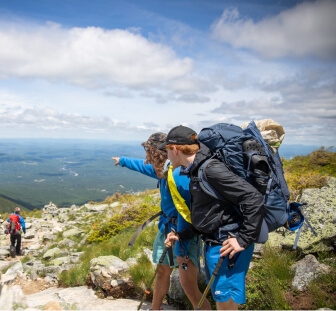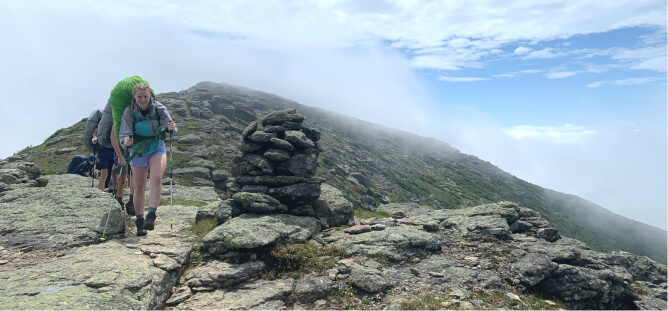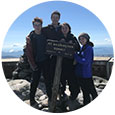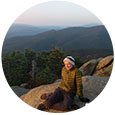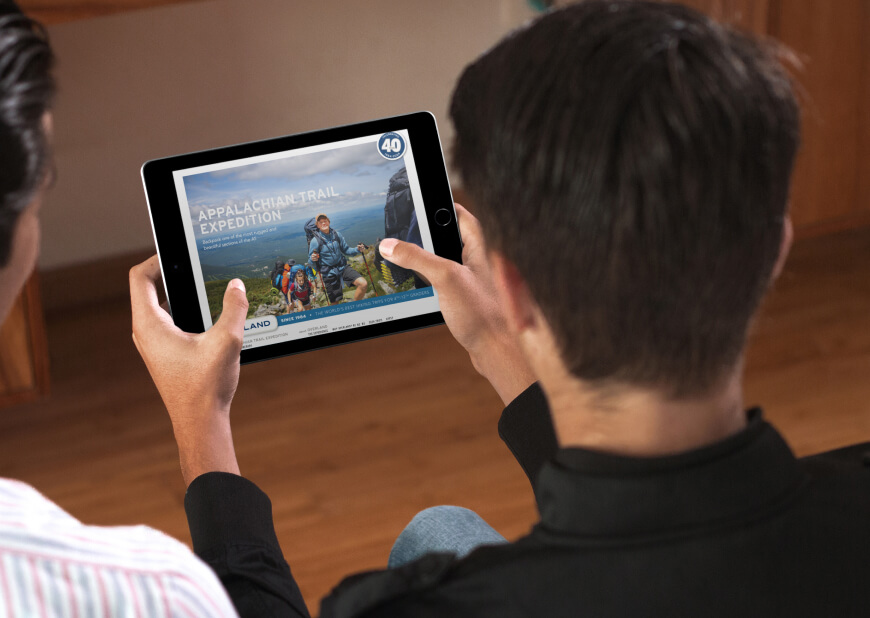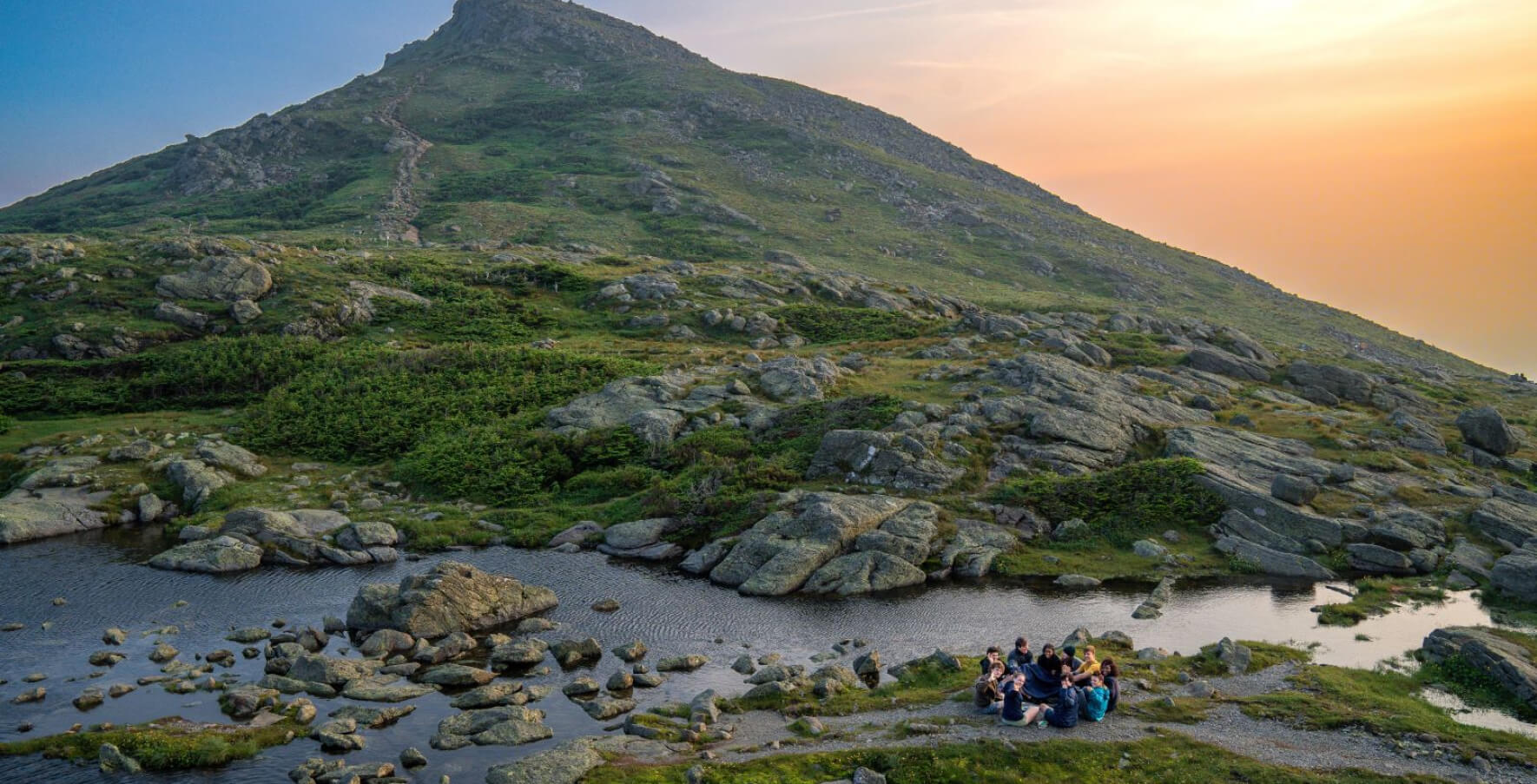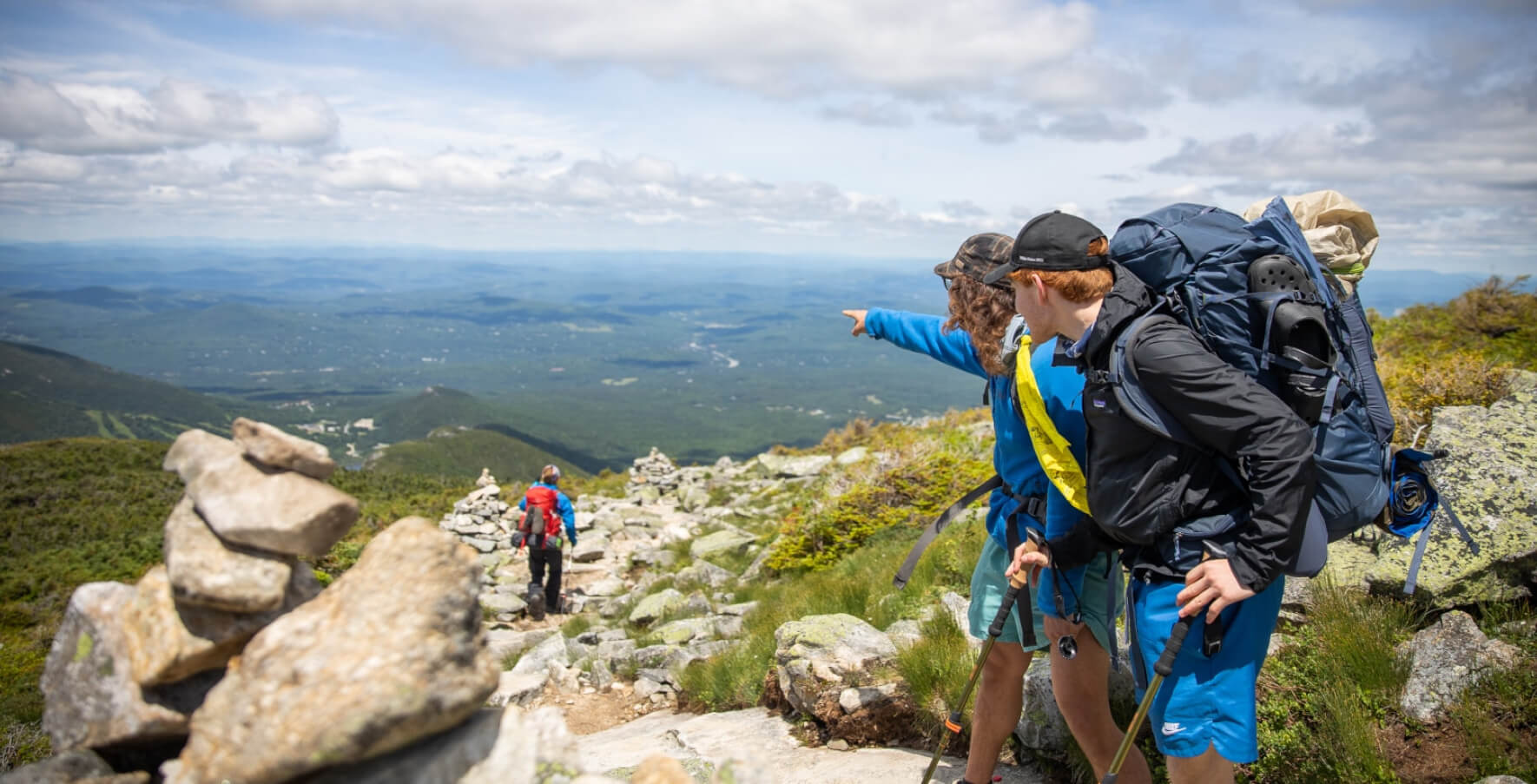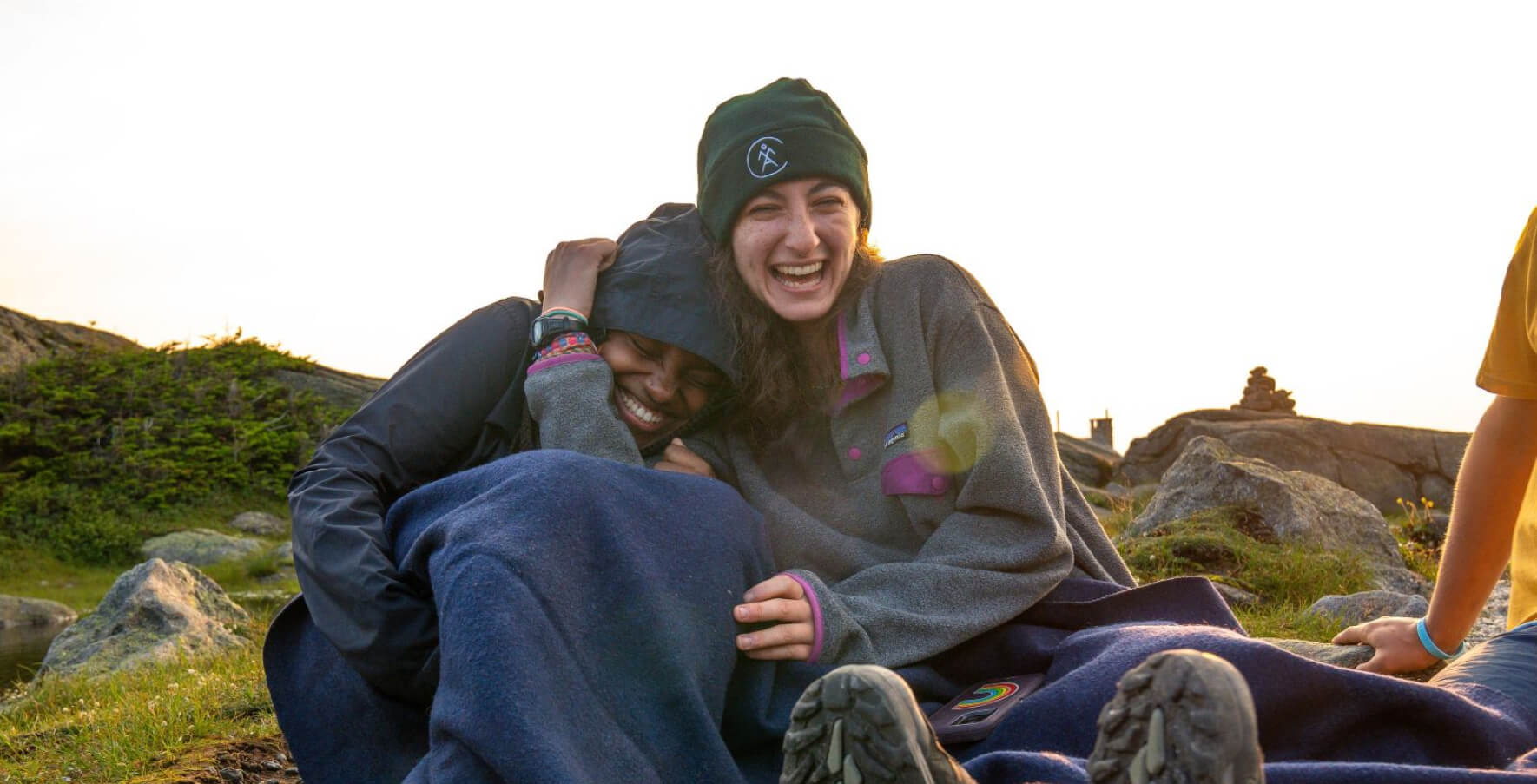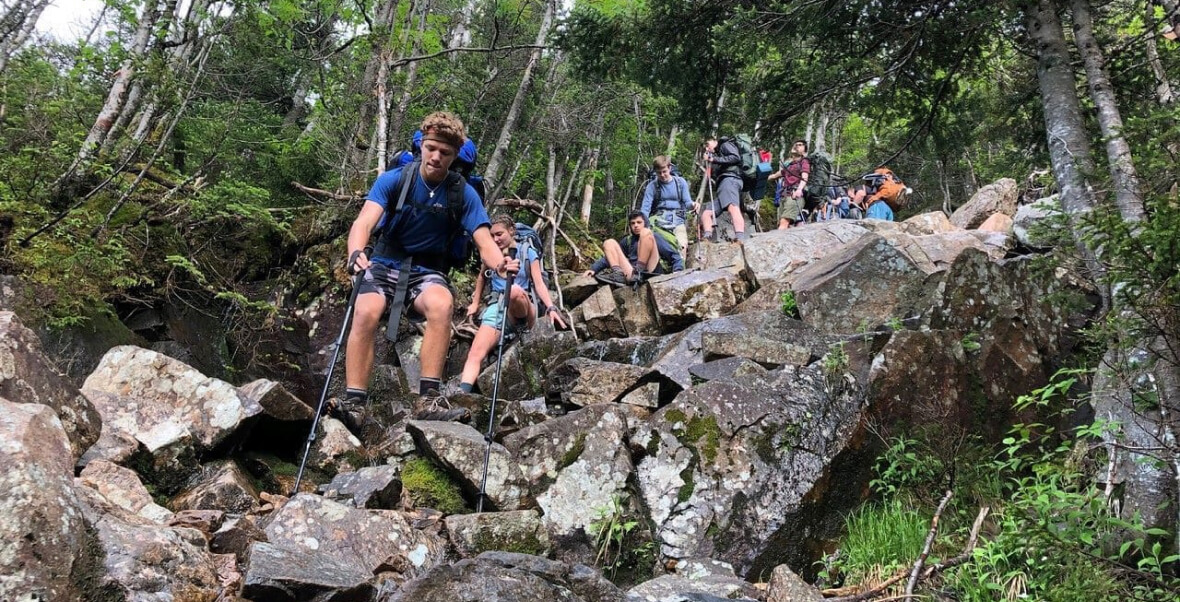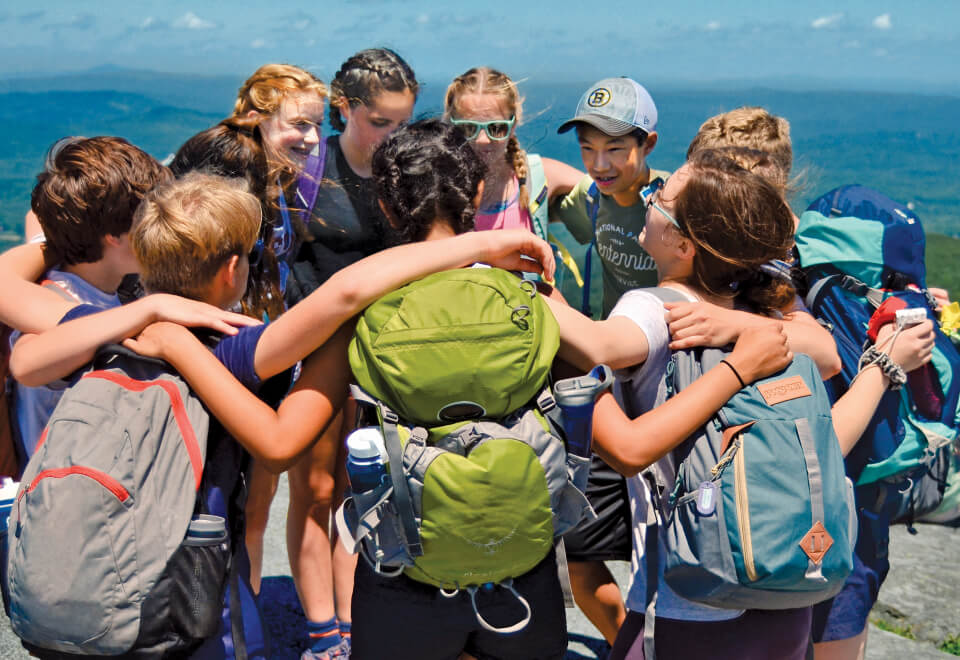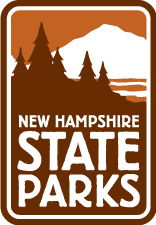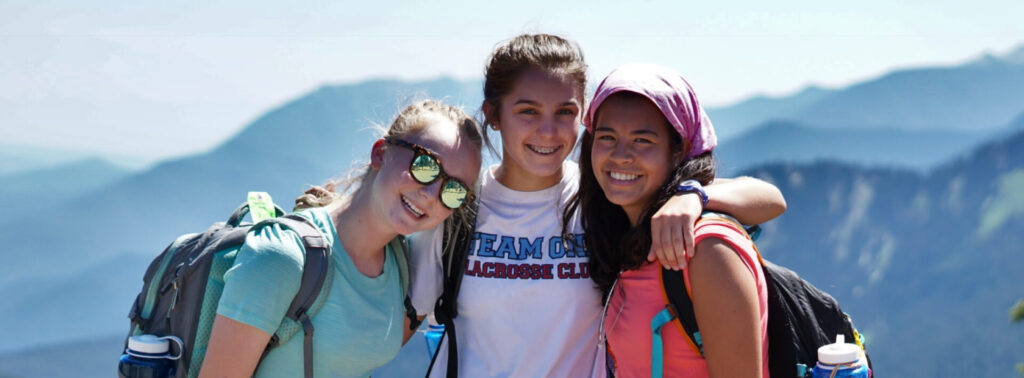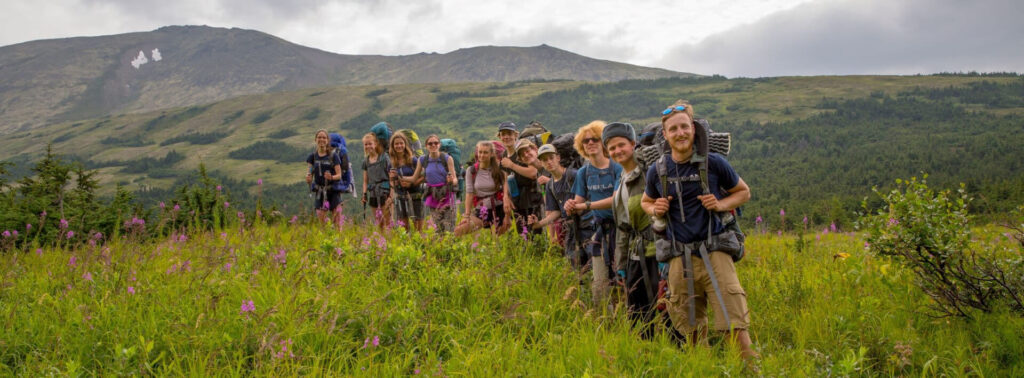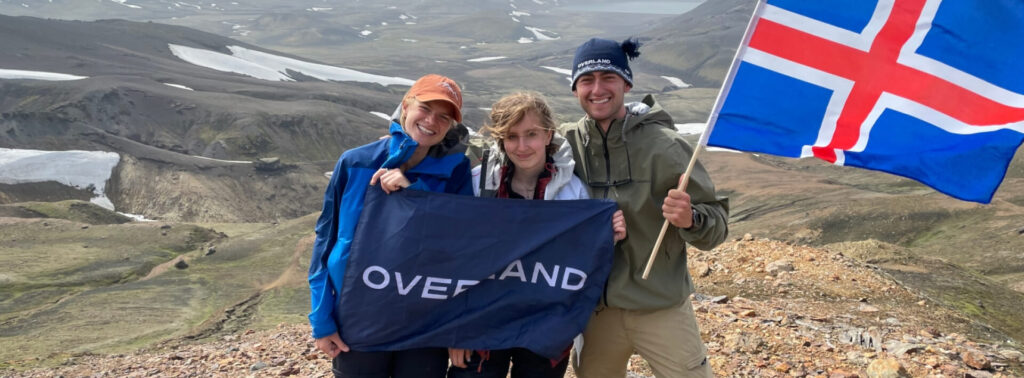Meals at Overland
Good food (and plenty of it!), excellent nutrition, and fun are the goals of Overland’s meals. Each group buys, prepares, and eats all of its meals together. Our students, with their leaders’ supervision, prepare all meals. A typical breakfast has cereal, milk, juice, and fruit; most lunches are sandwiches (or wraps) with a variety of fillings, plus chips, and fruit; dinners reflect easily prepared group meals like pasta, burritos, and stir-frys (all of which will typically have a selection of sauces and fillings). At Overland, meals are a group experience, an important way to foster connection with and consideration for other group members.
Allergies Intolerances
We recognize there are many young people with food allergies or intolerances. We welcome these young people’s interest in joining us, and we ask parents of a prospective Overland student with an allergy/intolerance to please consider the following important information.
Most meals at Overland are prepared in basic kitchens (or outdoors), and groceries are typically purchased from small stores with limited choices. As a result, meals are prepared and served in what may be allergen-contaminated environments, and on many trips allergen-free/gluten-free foods are not readily available. While we cannot guarantee allergen-free meal settings, we will do what is reasonable to provide allergen-free/gluten-free foods on those trips where available.
In all things, our top priority is to help maintain all students’ well-being; to this end, all Overland leaders are trained to recognize and respond to allergic reactions, including administering antihistamines and epinephrine (both are carried in every trip’s first aid kit); leaders carry cell phones, and in some cases, satellite phones, so that should the need arise, emergency personnel can be contacted and their services requested. It is important for all prospective parents to understand that many groups travel in remote areas where emergency services may not be easily or readily accessible.
Our Admissions Process is Collaborative
During our admissions process, we will review all submitted Allergy Questionnaires to understand the applicant’s allergy/intolerance. We will then consider whether or not the applicant’s allergy/intolerance may be reasonably accommodated. If our admissions team has any concerns, they will contact the parent. In this conversation, we will seek to learn more about the allergy/intolerance, and we will discuss the available grocery stores, emergency services, and medical facilities on the applied-for trip. These conversations generally have one of three outcomes:
- The applicant is placed on the applied-for trip if the applicant otherwise qualifies.
- We offer a different trip if the applicant otherwise qualifies.
- We recommend waiting a year and re-applying.
Managing Food Allergies/Intolerances is a Partnership
Our commitment is to the health and well-being of each of our campers. Our goal is to partner with parents and campers—a partnership in which:
- We clearly describe our trips and policies;
- Parents clearly describe their child’s allergies or intolerances and their child’s maturity level and capability to self-manage their allergy or intolerance.
- We work together with parents in a collaborative and interactive process to determine if there are reasonable accommodations that can be made so that otherwise qualified applicants can participate in our trips.
- Students on an Overland trip take an active role in managing their allergies, including reading food labels as needed, eating only those foods with known ingredients, and seeking a leader if a reaction is suspected.
Meals: Vegetarians Specialized Diets
Every summer there are many vegetarians who join our groups and who enjoy meat-free meals. We are happy to welcome these students as long as they understand they will share in the group’s meals but will simply have the meat portion withheld. For example: sandwiches at lunch with hummus, lettuce, tomato, and cheese (while the rest of the group has sandwiches with sliced turkey or ham); pasta at dinner with a tomato sauce (while the rest of the group has pasta with a meat sauce). We sometimes have requests from applicants with specialized diets—vegans, for example—to provide separate, specialized meals. As much as we might like to accommodate these applicants, the limitations of our kitchens, the size of available grocery stores, and the importance of group meals make it impractical to provide separate, specialized meals.
